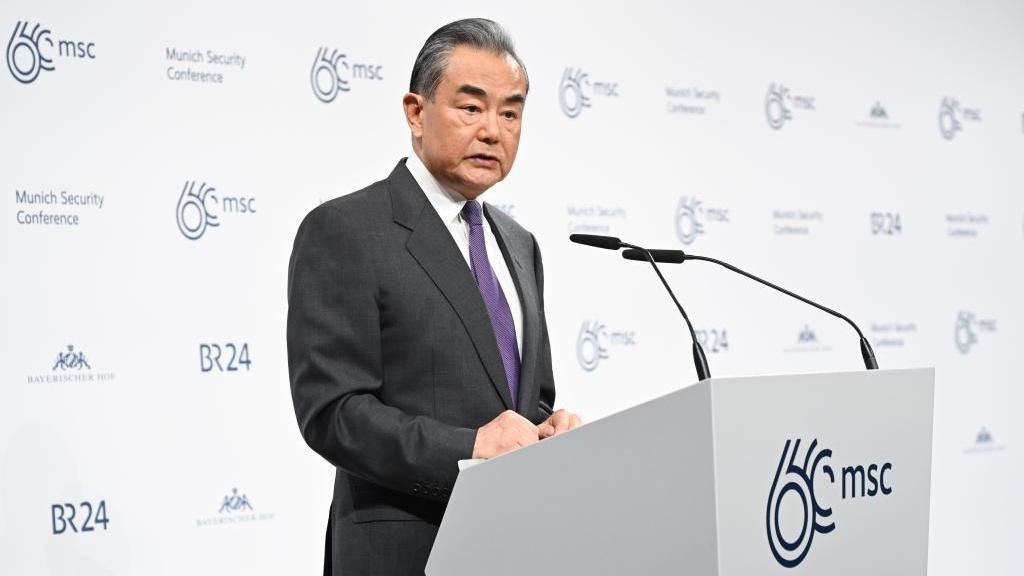 Chinese Foreign Minister Wang Yi, also a member of the Political Bureau of the Communist Party of China Central Committee, delivers a keynote speech entitled "Firmly acting as a force for stability in a turbulent world" during the "China in the World" session at the ongoing Munich Security Conference in Munich, Germany, Feb 17, 2024. (PHOTO / XINHUA)
Chinese Foreign Minister Wang Yi, also a member of the Political Bureau of the Communist Party of China Central Committee, delivers a keynote speech entitled "Firmly acting as a force for stability in a turbulent world" during the "China in the World" session at the ongoing Munich Security Conference in Munich, Germany, Feb 17, 2024. (PHOTO / XINHUA)
MUNICH, Germany - China and ASEAN countries have the ability and wisdom to reach a Code of Conduct in the South China Sea (COC) and safeguard peace and stability, freedoms of navigation and overflight, and legitimate rights and interests of other countries in the region, Chinese Foreign Minister Wang Yi said here on Saturday.
Wang, also a member of the Political Bureau of the Communist Party of China Central Committee, refuted the fallacy of so-called China's aggressiveness in the South China Sea when answering questions following his keynote speech during the "China in the World" session at the 60th Munich Security Conference.
In 2002, China pushed for the signing of the Declaration on the Conduct of Parties in the South China Sea with the Association of Southeast Asian Nations (ASEAN) countries, which has effectively safeguarded peace and stability in the South China Sea, Wang said
ALSO READ: Wang Yi: China stands firm as stabilizer in turbulent world
The Nanhai Zhudao (the South China Sea Islands) have been China's territory since ancient times, Wang noted. In the 1960s and 1970s, some countries invaded and occupied some of China's islands and reefs one after another, but China has always exercised restraint and insisted on resolving the issue through friendly consultation, thus the so-called China's aggressiveness makes no sense, he said.
In 2002, China pushed for the signing of the Declaration on the Conduct of Parties in the South China Sea with the Association of Southeast Asian Nations (ASEAN) countries, which has effectively safeguarded peace and stability in the South China Sea, he continued.
READ MORE: China, ASEAN aim to strengthen relations
China is working with ASEAN countries to accelerate consultations on the COC and striving to reach an early agreement on regional rules which are effective, substantive and in line with international law, including the United Nations Convention on the Law of the Sea, which will be more conducive to managing differences, stabilizing the South China Sea and promoting cooperation, Wang said.


